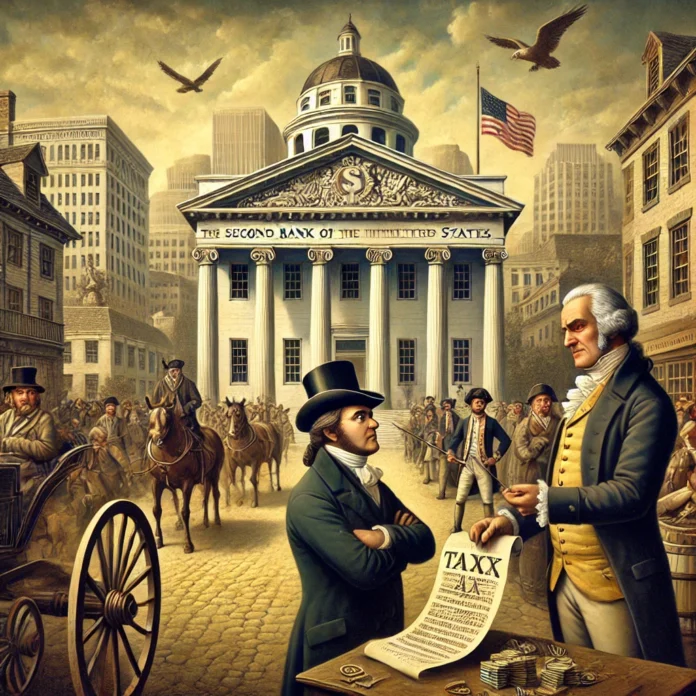On March 6, 1819, the U.S. Supreme Court delivered a landmark ruling in McCulloch v. Maryland, a case that clarified the balance of power between state and federal governments. Chief Justice John Marshall’s opinion reinforced the supremacy of federal law and affirmed Congress’s implied powers under the Constitution.
The dispute arose when Maryland attempted to tax the Second Bank of the United States, a federal institution. James McCulloch, the bank’s cashier, refused to pay the tax, arguing that the state lacked authority to tax a federal entity.
The Decision: Federal Supremacy and Implied Powers
The Court unanimously ruled in favor of McCulloch, stating that:
- Congress had the constitutional authority to create the bank, even though the power to do so was not explicitly stated in the Constitution. This was justified under the Necessary and Proper Clause.
- Maryland could not tax the bank, as doing so would give states undue power over the federal government, violating the Supremacy Clause of the Constitution.
Chief Justice Marshall famously declared, “The power to tax involves the power to destroy,” emphasizing that state laws could not obstruct valid constitutional actions by the federal government.
Impact on Federalism
McCulloch v. Maryland was a turning point in defining federalism in the United States. It established two critical principles:
- Implied Powers Doctrine: Congress can take actions not explicitly listed in the Constitution if they are necessary to achieve its enumerated powers.
- Federal Supremacy: Federal laws and institutions take precedence over conflicting state actions.
This decision significantly expanded the scope of federal authority, strengthening the national government’s ability to address complex issues beyond the states’ capacity.
Broader Significance
The ruling was instrumental in shaping the modern understanding of American federalism. It provided a foundation for future decisions that expanded federal power, such as those involving civil rights, environmental regulation, and interstate commerce. The case also underscored the judiciary’s role in resolving disputes over the Constitution’s meaning.
Takeaway
McCulloch v. Maryland reaffirmed the Constitution’s adaptability, enabling the federal government to meet the nation’s evolving needs while maintaining a balance of power between states and the central authority. Its legacy endures as a cornerstone of constitutional law.




